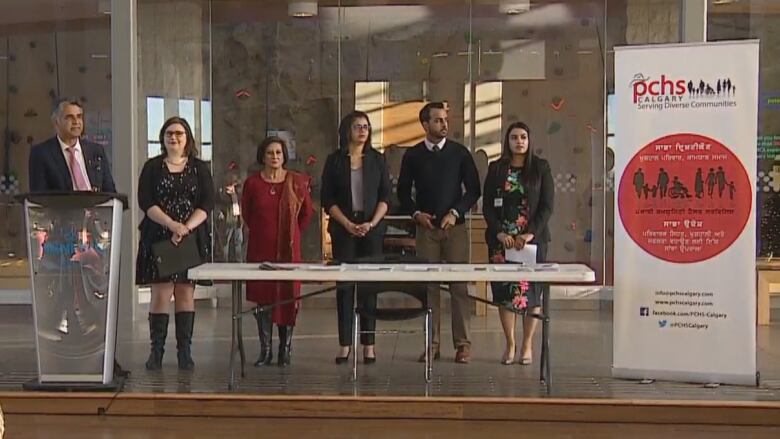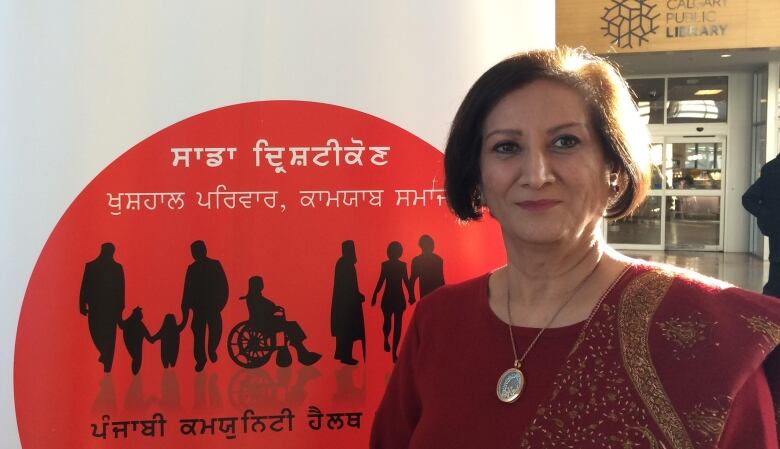Alberta funds $560,000 grant to tackle opioid crisis in Calgary's South Asian community
Non-profit group will hire case managers who speak Punjabi, Urdu, Hindi

The Alberta government is providing a$560,000 grant to Punjabi Community Health Services (PCHS) tofight opioidabusein Calgary's South Asian community.
The funding, which was announced Wednesday, will allow the not-for-profit organizationto hire two new case managers who speak several South Asian languages includingPunjabi, Urdu and Hindi, as well as provide counselling, distribute Naloxonekits, and host support groups and community awareness workshops.
The group offers culturally-aware harm reduction services including alcohol abuse and anger management programs as well as community and family supports in partnership with the Peter Lougheed Centre and Mosaic Primary Care Services.
"If you have a son, a daughter, a husband, a sister, a father, a neighbour, don't be afraid. Pleasecall us. We will have a multitude of services to help you," said board chair RaviNatt, at the press conference Friday morning.
"PCHSis here to support you through your journey. It doesn't matter where you are on that journey. We will walk with you."

Calgary has been particularly hard hit by the opioid crisis, with the highest number of fentanyl-related deaths (170) ofanycity in Alberta.
As of the end of September, 482 Albertanshave died from fentanyl-related overdoses this year.
Twenty-five of those deaths were in Calgary's northeast quadrant, where PCHS operates out of the Genesis Centre.
The service has seen an increase in clients seeking help for substance abuse in the past year.
Natt told CBC's The Homestretchthere are two major challenges her organization is trying to tackle: making sure people understand the consequencesof usingopioids, and tackling the shame and stigma of speaking out.
Those challenges have to be dealt with in a way that understands the dynamics and nuances of multi-generational, extended families in the South Asian community, and the process will be a long and complex one, she explained.
"To be able to provide all those services under one roof, in aculturally specific way, is a start," Natt said.
Language another barrier
More than 27,000 Calgarians speak Punjabi at home and more than 10,000 speak Urdu, according to the 2016 census.
The government has translated opioid information kits into 10 languages, including Punjabi and Urdu. The documents explain how to recognize and respond to an overdose, where to get free Naloxone kits and how to find treatment and support for patients and their families.
"For those whose first language is English, it can be challenging to speak with our doctors candidly about how much alcohol we drink, or if we have other concerns about opioid use or other substances. And this can be much more challenging if English isn't your first language or if you don't speak English at all," said Associate Health Minister Brandy Payne at the press conference.
The funding was based on a recommendation by the health minister's opioid emergency response commission.
Payne said that the government also offers culturally-specific supports for Indigenous communities, and is welcoming applications from other community support organizationsfor funding.
- MORE CALGARY NEWS |Nearly 100 kg of cocaine nabbed in largest seizure ever at Alberta border crossings
- MORE CALGARY NEWS |Newcomers to Canada given winter coats to keep them warm through Calgary's winter
With files from The Homestretch












_(720p).jpg)


 OFFICIAL HD MUSIC VIDEO.jpg)
.jpg)



























































































